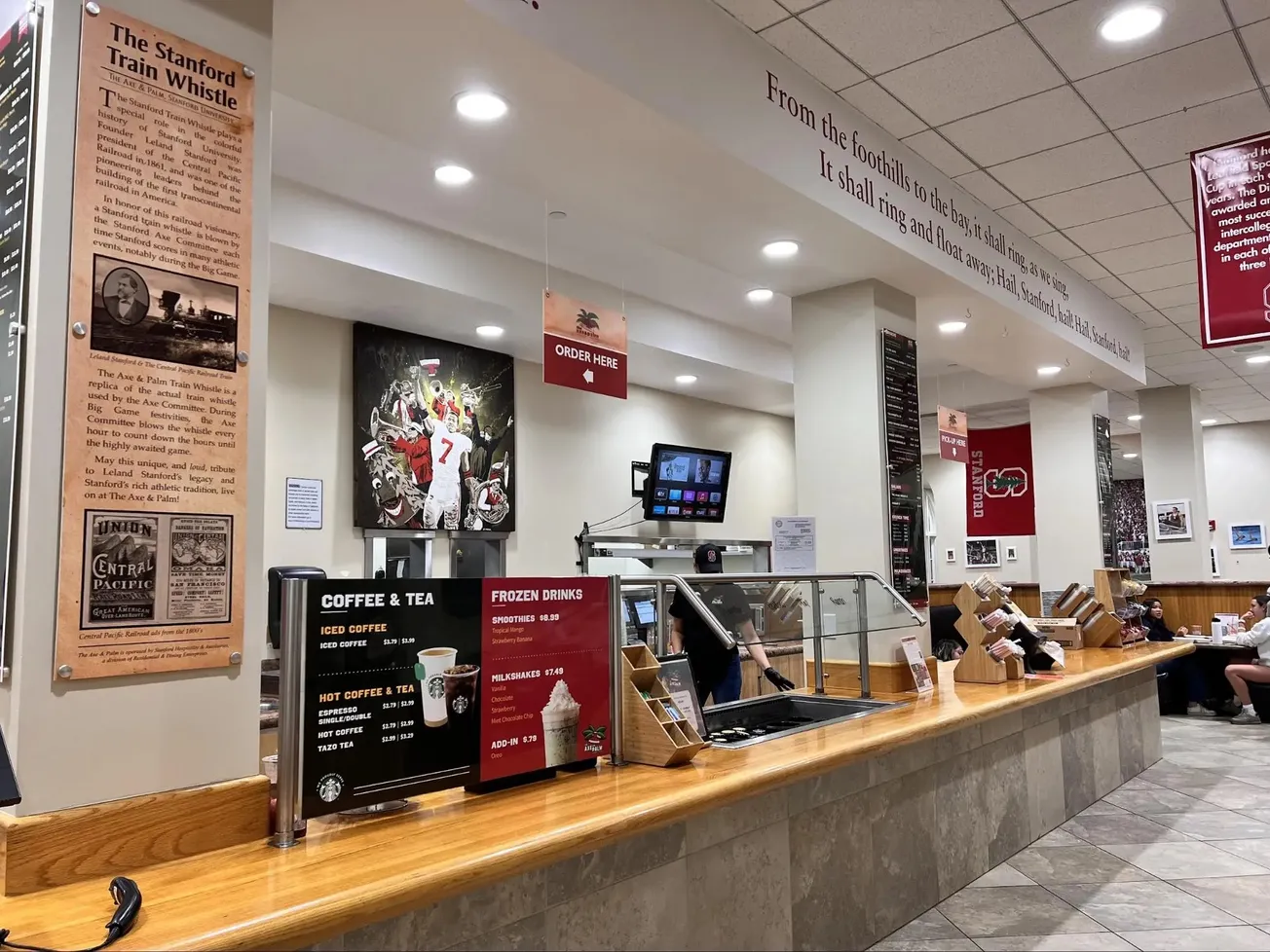Table of Contents
Late Night at Lakeside is a universally beloved institution among Stanford students as perhaps the only cheap, fast late-night food option on Stanford’s campus. The first week back this year, however, students returned to find that the prices had all virtually doubled.
Stanford's Residential & Dining Enterprises (R&DE) has long been a thorn in the side of students, but the recent price hike to which students returned this year sets the bar even lower. R&DE's insatiable appetite for squeezing every last cent out of students, who already pay sky-high tuition rates, has reached an unacceptable point, and the bloated bureaucracy behind it must be stopped.
Let's start with the great meal plan scam, an audacious cash grab that would make the most shameless street hustler or bike thief blush. This fall, the 15 meals per week plan costs $2,797 for 12 weeks, or $15.54 per meal. However, if you drop to 12 meals per week, you're giving up 36 meals worth $560. And what do you get in return? A measly $100 in dining dollars. All told, you're paying $560 for $100 worth of campus currency. It is an out-and-out scam.
But R&DE doesn't stop there. They've bumped up the meal plan cost by 5.6% - more than twice the inflation rate of 2.4% - while double-dipping by further hiking food prices. Students are getting hit from all angles: paying more for the plan, facing higher food costs, and receiving the same paltry amount of dining dollars at a rate that far outpaces inflation. It's a triple threat that leaves students hungry, broke, and increasingly frustrated. After much backlash, the administration caved and lowered late-night prices, all but confirming that not only did they have the ability to keep prices low, but that the initial hike was nothing more than a greedy swindle under the guise of inflation.
This price gouging manifests across campus. Take a stroll to Tresidder, and you'll find protein shakes and sodas marked up by an eye-watering 250-500% from retail. At the Union Square mini-market, snacks are priced at hefty markups, with $6 for a bag of chips and $4 for a small chocolate bar. At a school as exclusive and expensive as Stanford, food and basic goods should be subsidized to help students, not as another desperate cash grab. Our Yale peers, for instance, enjoy quesadillas for $1-2 and fries for $1 at their casual dining facilities.
While prices soar to new heights, services are being slashed. Lakeside and Arrillaga dining halls have cut their hours, closing earlier and leaving students without a consistent, 24-hour dining option, particularly on Friday nights and weekends. Arrillaga Nights, which were expected to start this quarter, are yet to go live, and even those are restricted to just 3 nights a week. Even the once-free TAP sauces now come with a price tag. R&DE’s reign lends itself to predatory policies that nickel-and-dime students every chance they get. If monopolies don’t work for consumers, why would they work on campus?
R&DE's antics aren't confined to our stomachs; it's invading our living spaces, too. In Toyon and Roble, what were rooms intended to be two-room doubles have morphed into cramped triples or quads, creating living situations that would make a New York City slumlord proud. Over in West Lag—my freshman dorm— rooms clearly designed as singles are now doubles, forcing students to share closets. All this while hiking housing prices by a staggering 7% - nearly triple the inflation rate! Their management of housing was so incompetent that some juniors were even forced to wait until July to receive their housing assignments.
Stanford boasts 8,000 acres—one of the largest college campuses in America, and certainly among our peer institutions—and sits atop a multi-billion dollar endowment. Yet they cram students into ever-shrinking spaces while jacking up prices despite student populations remaining largely unchanged. For students and families already facing massive tuition burdens, R&DE's relentless price-gouging and space-cramming isn't just poor policy. It's a moral failure that demands immediate reform.





